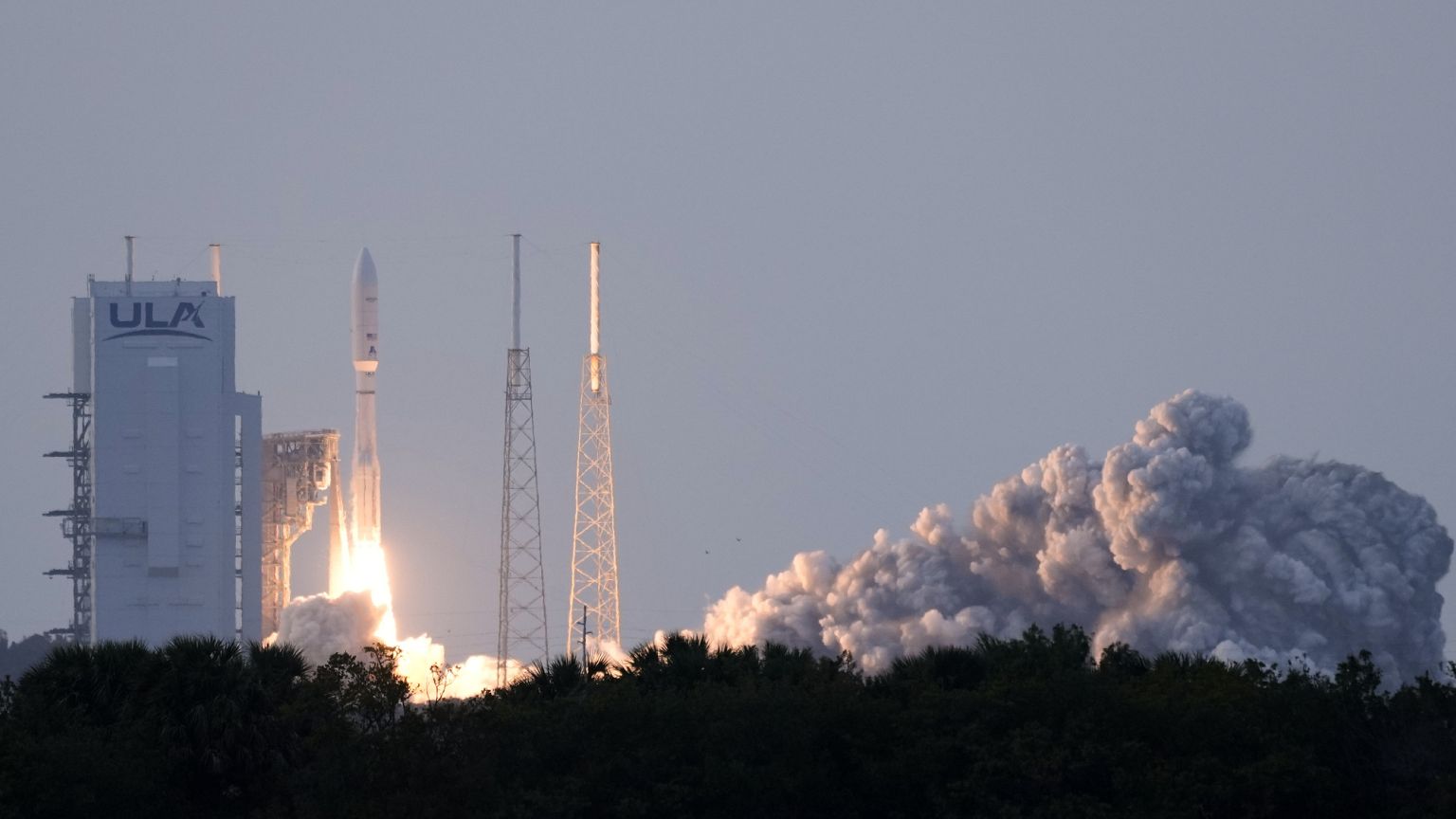Amazon successfully launched its first full batch of Project Kuiper internet satellites into orbit Monday night, marking a significant step into the competitive satellite broadband market currently led by Elon Musk’s SpaceX. A total of 27 Kuiper satellites were deployed aboard a United Launch Alliance Atlas V rocket from Cape Canaveral Space Force Station.
The satellites will ascend to an operational altitude of nearly 630 kilometres. This marks Amazon’s second foray into space following the launch of two test satellites in 2023. Project Kuiper, named after the icy region beyond Neptune, aims to build a megaconstellation of over 3,200 satellites to deliver fast, affordable internet worldwide.
Unlike earlier models, the newly launched satellites are equipped with a mirror coating designed to scatter sunlight and reduce interference with astronomical observations—a growing concern among scientists and stargazers. The rapid increase in low-Earth orbit satellite constellations has sparked backlash due to their impact on night-sky visibility and the potential for orbital collisions.
Amazon founder Jeff Bezos, who also owns spaceflight company Blue Origin, has secured dozens of future launches for Project Kuiper through both ULA and Blue Origin, among others. Vice President of Project Kuiper Rajeev Badyal emphasized that the mission is still in its early stages and that some crucial insights can only be gained during actual flight, despite rigorous ground testing.
Amazon’s move intensifies the space-based broadband race. SpaceX, with more than 8,000 Starlink satellites launched since 2019, remains the market leader. Roughly 7,000 of those are still active in orbit at around 550 kilometres. The European OneWeb system trails behind with a few hundred satellites in a higher orbit.
As satellite deployments grow, concerns around atmospheric burn-up pollution, light interference, and frequency disruption are mounting. Nevertheless, Amazon’s latest launch reinforces its ambition to become a key player in the future of global internet infrastructure from space.
Source: Swifteradio.com


